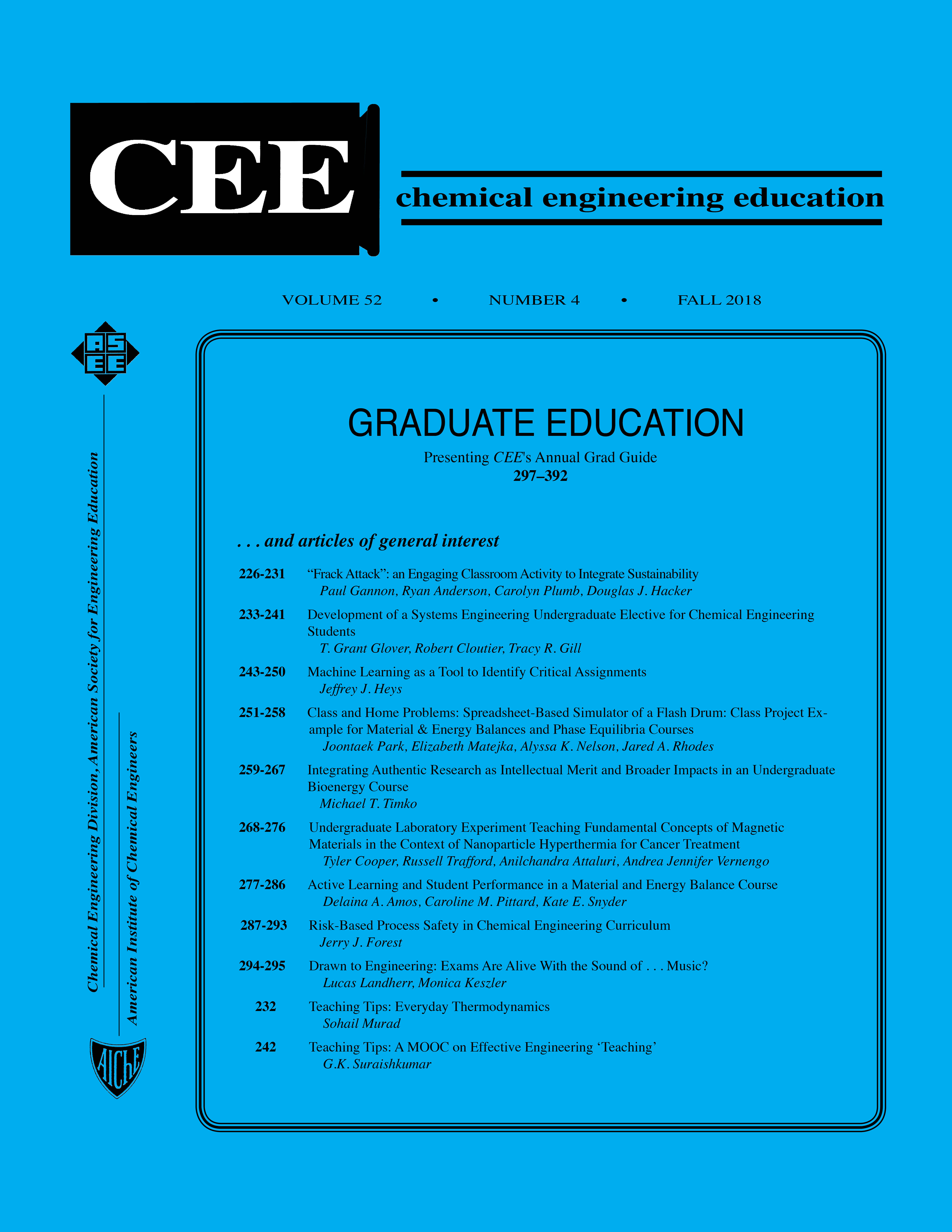Active Learning and Student Performance in a Material and Energy Balances Course
Abstract
This paper focuses on the incorporation of active learning techniques and collaborative problemsolving teams in an introductory sophomore-level Material and Energy Balances course. It details a course redesign and evolution over a five-year period from the perspective of a new instructor. Major outcomes of the course redesign, including midterm and final exams and homework grades, are followed throughout the study and are interpreted in terms of statistical differences in performance between the annual course offerings.


